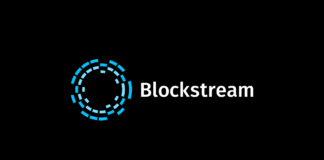Thailand has taken a significant stride in embracing the digital asset landscape by launching a groundbreaking regulatory sandbox aimed at fostering the development and experimentation of novel cryptocurrency-related services. This move by the Thailand Securities and Exchange Commission (SEC) underscores the country’s commitment to nurturing innovation in the capital markets while maintaining a prudent regulatory framework.
Thailand SEC’s Digital Asset Regulatory Sandbox
The Thailand SEC announced the launch of its “enhanced” Thailand regulatory sandbox on August 9th, 2024, expanding the scope of its existing framework to include financial innovations not yet authorized by the Thailand central bank. This new initiative provides a controlled environment for private firms to test their crypto test products and services, with a specific focus on programmable payments regulatory sandbox.
Eligibility Criteria and Participant Requirements
The SEC has outlined clear eligibility criteria for the sandbox banking, targeting a range of digital asset service providers, including exchanges, brokers, dealers, fund managers, advisors, and custodial wallet providers. Prospective participants must demonstrate their qualifications, such as adequate capital, robust work systems, and a sound management structure, to ensure they are well-prepared to operate within the regulatory boundaries.
Programmable Payments: The Initial Focus
The first theme of the enhanced regulatory sandbox is programmable banking, defined by the SEC as “automated transactions with predefined conditions for the payment of goods and services.” This innovative concept leverages distributed-ledger technologies (DLT), smart contracts, or similar technologies to enable seamless and automated financial transactions.
Collaboration with Other Regulators
The Thailand SEC has emphasized the importance of working closely with other financial authorities, such as the Securities and Exchange Commission, the Office of Insurance Commission, and the Fiscal Policy Office, to evaluate the benefits and risks of these financial innovations. This collaborative approach aims to establish suitable supervisory policies and ensure the responsible development of the crypto ecosystem.
Thailand’s Retail CBDC Pilot Project
Interestingly, the central bank of Thailand (BOT) has been actively exploring the potential of sandbox payment, having conducted a pilot project on a retail central bank digital currency (CBDC) during 2023. This initiative, which explored a “flexible ledger solution” and implemented use-cases developed during a “hackathon,” showcased the country’s commitment to innovation in the digital finance space.
The Thailand BOT has emphasized its “policy of responsible innovation,” which promotes the development of financial technologies in a manner that is accountable to the economic and financial system. This approach underscores Thailand’s balanced stance, aiming to foster innovation while maintaining appropriate risk management processes.
Addressing Regulatory Challenges
The introduction of the enhanced regulatory sandbox also highlights the ongoing challenges faced by regulators in keeping pace with the rapid advancements in the crypto space. By proactively addressing these challenges, Thailand positions itself as a forward-thinking nation, ready to embrace the transformative potential of digital assets while maintaining appropriate safeguards.













